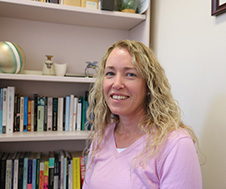 Thursday 29 March 2018 10:37am
Thursday 29 March 2018 10:37am
There needs to be more commitment by local government to help achieve central government's Smokefree 2025 goal, new University of Otago research shows.
The research, just published in the Health Promotion Journal of Australia, examined the 239 draft consultation and supporting documents for Long Term Plans in the Canterbury and West Coast regions for 2015, together with 5,926 public submissions to determine the extent of action plans for smokefree.
Local authorities are required to develop 10-year strategic Long Term Plans and drafts of these plans are available for public consultation. This provides communities with the opportunity to see what commitment councils are making to the Smokefree 2025 goal, as well as making their own submissions to extend smokefree environments.
The Otago researchers found that of the 13 councils in these regions, there was no mention of Smokefree 2025 in any of the draft documents and only 1 per cent of all public submissions were smokefree related.

Dr Louise Marsh, Co-Director of the Cancer Society Social and Behavioural Research Unit, University of Otago's Department of Preventive and Social Medicine.
One of the study's authors, Dr Louise Marsh, Co-Director of the Cancer Society Social and Behavioural Research Unit in the University of Otago's Department of Preventive and Social Medicine, says follow-up telephone interviews with council staff indicated the immediate priorities of councils were mainly focused on improving infrastructure services and financial prudence.
Most councils in New Zealand have adopted smokefree policies, but many have not progressed these policies beyond greenspaces to other community spaces like outdoor dining areas, Dr Marsh says.
Compliance costs, lack of suitable resources and poor knowledge concerning the effectiveness of smokefree policies were also seen as barriers to implementing smokefree policy.
Dr Marsh says the findings indicate a lack of commitment by local government to achieving Smokefree 2025 which she says is consistent with other New Zealand research that indicates progress towards the goal is slow.
The government is committed to the goal of making New Zealand smokefree by 2025 and progress towards this goal could be achieved through further extension of smokefree environments to include outdoor dining areas and main streets in towns and cities, Dr Marsh says.
While other countries have extended smokefree areas, current New Zealand legislation requires the grounds of schools and early childhood centres are smokefree, but there is no provison to prohibit smoking in other outdoor areas.
“Perhaps central government should consider national legislation for smokefree outdoor areas?” Dr Marsh suggests.
The researchers suggest there are opportunities for health groups to work with councils to try and enhance their commitment to Smokefree 2025 and promote wellbeing.
Cancer Society Canterbury West Coast chief executive Elizabeth Chesterman says local government activities need to be part of wider efforts in tobacco control.
“Local authorities are a key partner for us and other health agencies in progressing smokefree environments and achieving the goal of a Smokefree Aotearoa by 2025.”
Voluntary partnerships such as Canterbury's “Fresh Air Project” might also be ways for businesses, such as hospitality ventures to become 100 per cent smokefree, she says.
The new research, The contribution of smokefree outdoor areas in achieving New Zealand's Smokefree 2025 goal, was authored by Manal Murad, a Master's Student in the Department of Preventive and Social Medicine, together with Dr Marsh and her fellow Co-Director of the Cancer Society Social and Behavioural Research Unit, Professor Rob McGee with support from the Canterbury West Coast divison of the Cancer Society. The study was funded by the Cancer Society of New Zealand.
For more information, please contact:
Dr Louise Marsh,
Co-Director Cancer Society Social and Behavioural Research Unit
Department Preventive & Social Medicine
University of Otago
Email: louise.marsh@otago.ac.nz
Martin Witt
Health Promotion Manager
Cancer Society Canterbury West Coast
Cancer Society of New Zealand
Email: martin.witt@cancercwc.org.nz
Liane Topham-Kindley
Senior Communications Adviser
Phone: 03 471 6464
Email: liane.topham-kindley@otago.ac.nz
A list of Otago experts available for media comment is available elsewhere on this website.
Electronic addresses (including email accounts, instant messaging services, or telephone accounts) published on this page are for the sole purpose of contact with the individuals concerned, in their capacity as officers, employees or students of the University of Otago, or their respective organisation. Publication of any such electronic address is not to be taken as consent to receive unsolicited commercial electronic messages by the address holder.
